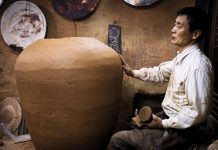In “Guyana – Bitter Harvest,” Zaiba Malik takes a closer look at the economic and political struggles in the South American nation of Guyana, where ethnic tensions have been a longstanding issue.
Malik highlights the ongoing conflict between Guyana’s Afro-Guyanese and Indo-Guyanese populations, which has been fueled by a history of slavery, indentured servitude, and political maneuvering. The country’s two largest ethnic groups, who make up nearly 80% of the population, have been at odds for decades, with each side accusing the other of economic and political dominance.
The documentary explores the impact of these tensions on Guyana’s economy, which is largely based on agriculture and mining. Malik interviews farmers, miners, and small business owners who have been affected by the violence and instability in the country. Many have lost their livelihoods and struggle to make ends meet in a country that is still recovering from years of economic hardship.
The documentary also examines the role of the government in exacerbating ethnic tensions. Malik speaks with political leaders and activists who are working to promote unity and end the cycle of violence. Despite some progress, many believe that the government needs to do more to address the root causes of the conflict and ensure that all Guyanese have equal access to resources and opportunities.
One of the most striking moments in the documentary is when Malik visits a community in the rural interior of Guyana. Here, she meets with members of the Wapichan people, who have been fighting for their land rights for years. Despite their efforts, they have faced violence and intimidation from miners and loggers who are encroaching on their ancestral territory. The Wapichan people’s struggle is just one example of the challenges facing Guyana’s indigenous communities, who often bear the brunt of environmental degradation and land grabs.
Through interviews with a diverse range of voices, “Guyana – Bitter Harvest” paints a complex picture of a country struggling to overcome its history of violence and inequality. The documentary is a powerful reminder of the human cost of ethnic conflict and the urgent need for greater economic and political stability in Guyana.

































